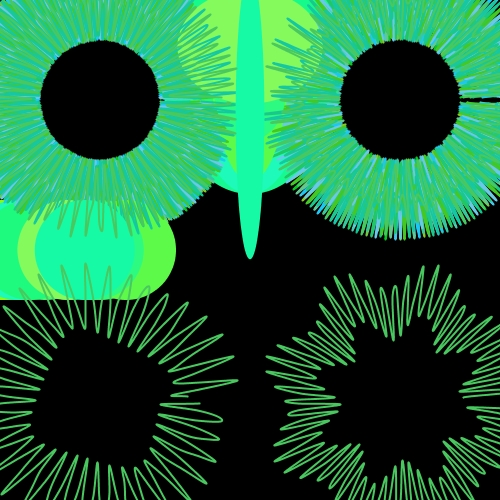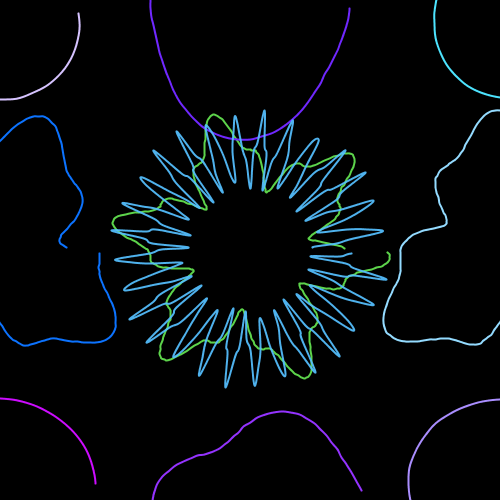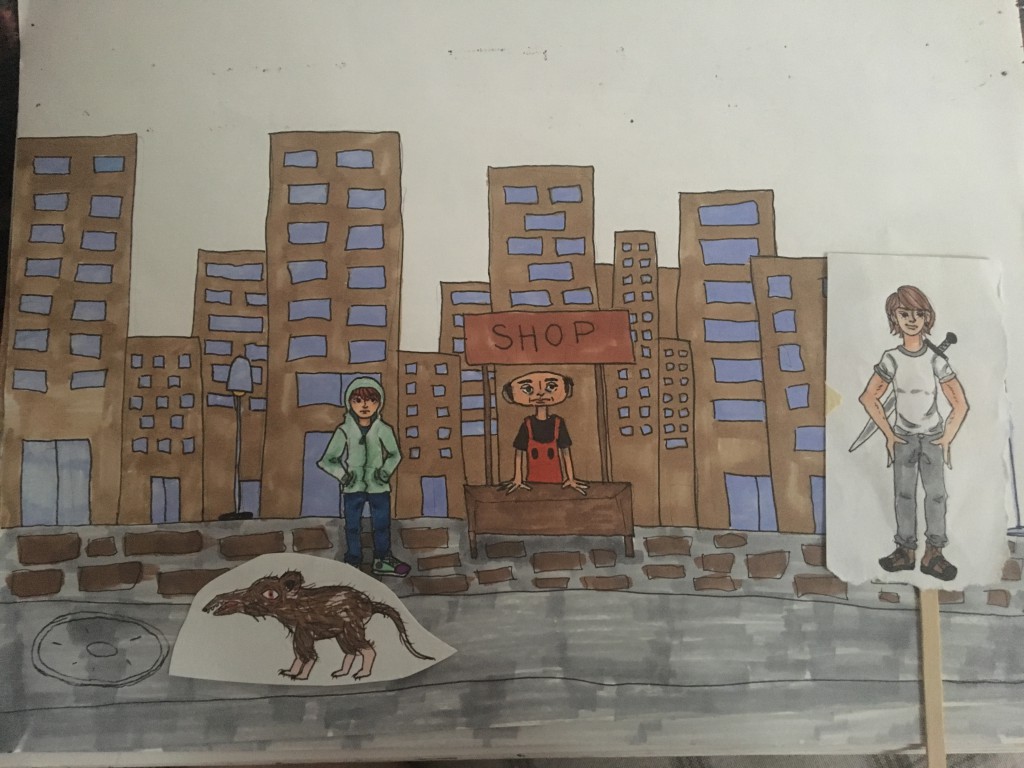
My game is about a young adult, Lena, who starts off working in the City Watch, but later decides her path in life. The City Watch is an organization in this city that protects people and prevents crime. Their main objective is to shut down and underground organization, the Thieves’ Guild, that is committing most of the crime in this city. The City Watch and the thieves are the two factions in this city. While the City Watch is “morally right” and the Thieves’ Guild is “morally wrong” at first glance, that is not necessarily true. Both factions have their upsides and downfalls. While Lena works on her main objective of shutting down the thieves, she learns more about their objective and purpose. As she learns more about them, she can decide to go through with her original goal of shutting them down, or she can join them and abandon her place at the City Watch.
As Lena gets closer to the thieves, she learns that they are not as bad as the City Watch makes them out to be. They steal a lot of valuables, but they do it out of necessity. The city has an “every man for himself” vibe, so people have to do what they can to survive. There is a lot of crime in the city anyway, and the thieves are at the root of most of it. The thieves, however, are a sanctuary for any person that is struggling to make ends meet in the city. So, even though the thieves may commit crime and steal, they are truly morally grey. They help people while also committing crime. Lena also learns that the City Watch does not help people who are in need; they only stop crime from happening. They do not help people who are struggling to survive, they only help people when crime is involved.
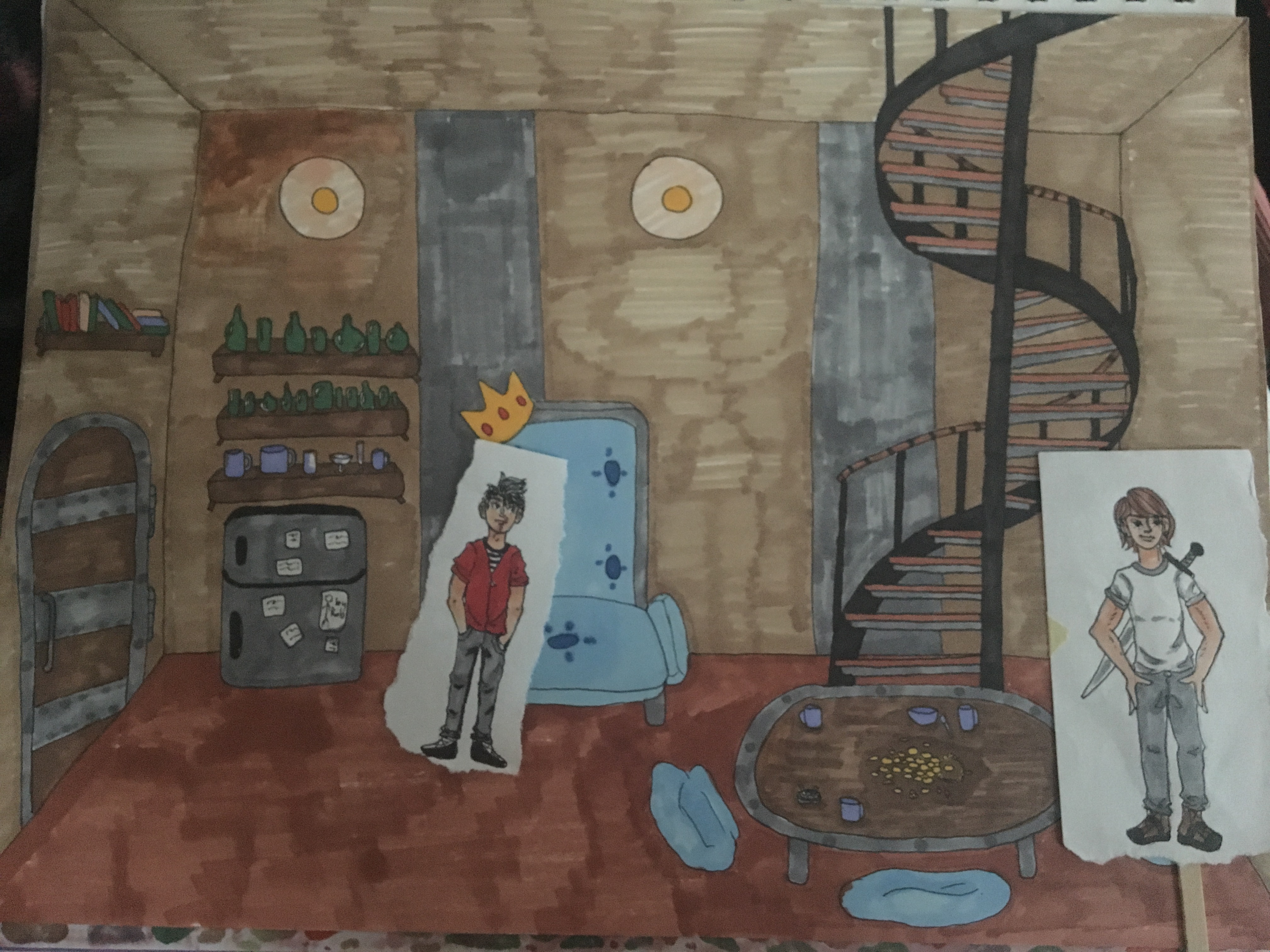
My game is radical because the player has a choice in which side they want to end up with. Neither side is truly right or wrong. Each side has its positives and negatives, so where the player wants to be is up to them. The player can help out the thieves more, or the City Watch more, and those choices help shape the story in the game.
My game was inspired by the games that I play often. I tend to play a lot of RPG, fantasy-style games. I like games where decisions and choice-making are heavy influences on the game’s outcome. The Witcher franchise, and the Dragon Age franchise are a couple of the games that inspired my game idea. These games use choice and player actions as a way to shape the story. I wanted my game to be like that; I wanted the player to have a say in how they impacted the game.
I think the art of my game that has changed the most over the semester has been the mood of the city. At first, I had the city be fairly light. The sky was a light blue and the colors of the buildings matched the palette of the City Watch and the color of the sky. But I did not really like how that felt. I thought it would be better if the town had a darker color palette. I changed the sky to a dark grey-purple, and the buildings to reddish -purple. The windows closer to the City Watch are light grey and light orange-pink. As the buildings get closer to the sewer, the windows become darker grey. While building this scene, I also decided that the characters should have an attitude of “I do what is best for me and no one else.”
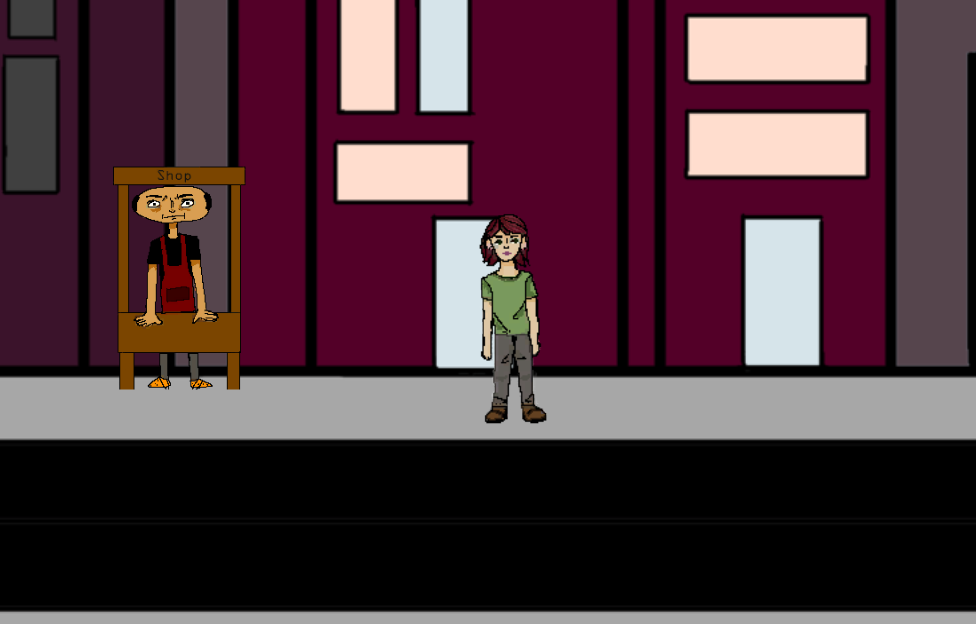
Lena stayed the same throughout the course of the semester, and the sewer scene also did not change much. Lena’s design and personality have stayed the same throughout the semester. The sewer’s design changed slightly, and it gained some more events, but it remained mostly the same across the semester.
What surprised me the most about my ability to make the game was how much simpler coding it was than I remembered. The longer I spent working on the game, the easier coding it became. I had very few issues when it came to coding features in the game, and I had more issues when it came to putting together UI elements. Before starting the game, I thought the difficulties of both those aspects would be switched.
I think time management was super important when it came to making the game in this class.It is definitely easy to fall behind if work is not done on time. I think I did well in managing my time and not falling behind, but I can see how it would be easy to get caught up working on one feature and letting all others fall by the wayside.

